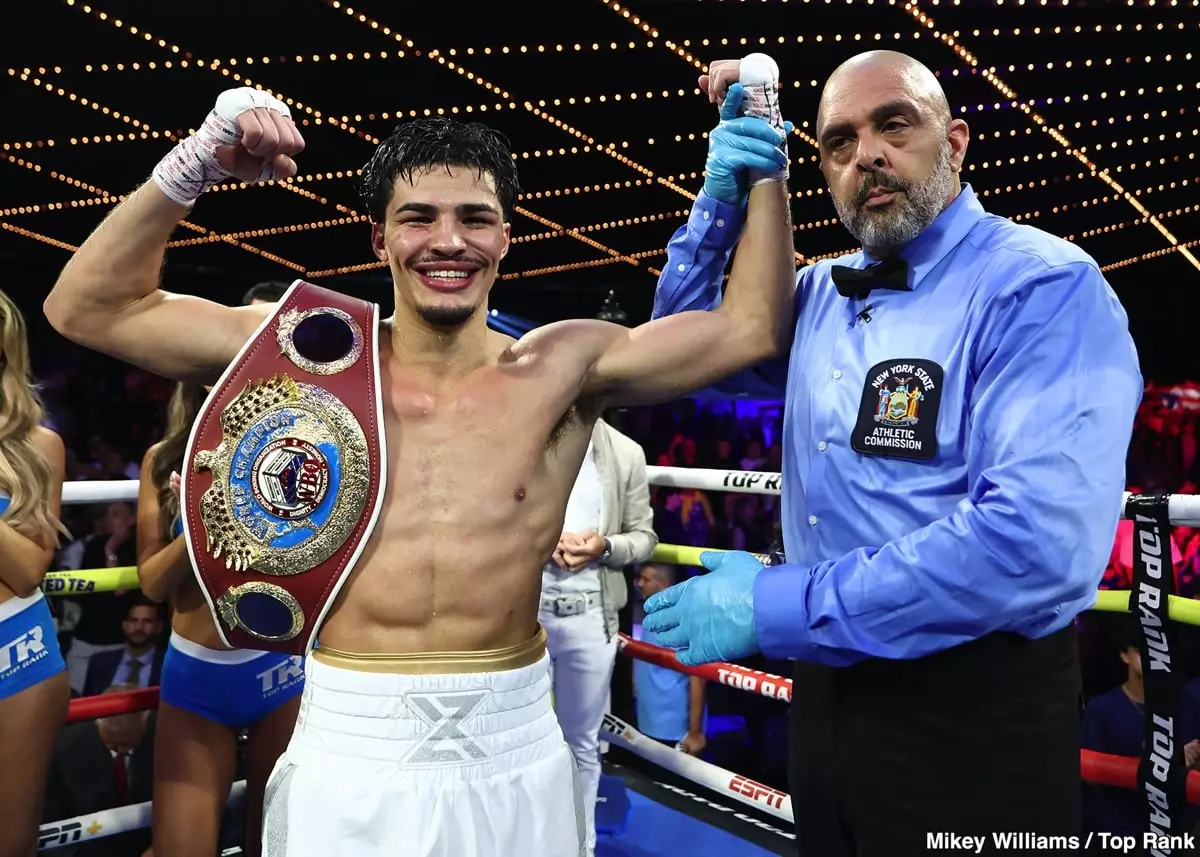In the world of professional boxing, reputation often clouds the perception of legitimate achievement. The recent clash of words between Xander Zayas and Vergil Ortiz Jr. exemplifies this phenomenon. Zayas, at just 22, secured the vacant WBO junior middleweight belt in a convincing fashion, yet many critics argue his victory was a product of strategic matchmaking rather than true mastery. Conversely, Ortiz Jr., despite his longer career and higher-profile name, has yet to seize a title opportunity. This scenario underscores a crucial point: achievements in boxing are heavily influenced by the environment and opportunities provided by promoters and sanctioning bodies, rather than solely by skill or worth.
The narrative that emerges suggests that Zayas’ rapid ascent was facilitated by a favorable positioning, with promoters deliberately guiding him into a championship shot at a young age. While this might seem like an advantage, it also raises questions about the meritocracy of the sport. Is a fighter’s success purely based on merit, or does it depend on strategic alliances and behind-the-scenes maneuvering? Ortiz Jr.’s comments reflect a frustration rooted in this ambiguity, hinting that his lack of a title shot is more a failure of opportunity than of talent.
The Illusion of Experience and Accomplishment
Vergil Ortiz Jr., an experienced fighter at nine years in the pro ranks, claims that Zayas “hasn’t accomplished anything.” This statement invites scrutiny, as Ortiz Jr. himself has yet to secure a major world title despite his tenure. The reality is, accomplishments in boxing are often skewed by the politics of the sport—who gets a shot versus who actually deserves it. Ortiz Jr.’s tenure demonstrates the importance of timing and positioning over raw ability, a reminder that longevity does not always equate to greatness.
Furthermore, Ortiz Jr.’s assertion that Zayas’ belt is a “gift” brings to light a common misconception that title victories are solely merit-based. While skill and performance are undeniably essential, the reality is that success in boxing often hinges on strategic matchmaking, promotional backing, and even luck. Ortiz Jr. appears bitter about the perceived privilege that allowed Zayas to claim a belt so early, yet the broader context indicates that such “gifts” are baked into the sport’s structure for fighters with savvy management.
The Implication of Youth and Promise in Shaping Debate
The clash between Zayas and Ortiz Jr. also reflects a broader narrative about potential and prestige. Zayas, still young, is celebrated for his rapid ascension, while Ortiz Jr., despite superior experience, remains unfulfilled in his career. The suggestion that Ortiz Jr. is “young” and thus still developing implies that success is a matter of time, not immediate achievement. This perception often undervalues the importance of seizing opportunities when they arise, valuing instead a hypothetical future where experience automatically translates into greatness.
It’s important to recognize the double standard at play: younger fighters are often celebrated for their potential, while older fighters are judged by their accomplishments. Ortiz Jr.’s criticisms reveal frustration with this inconsistency—feeling that his hard work isn’t properly appreciated because he hasn’t yet secured the ultimate prize. Yet, his career case suggests that in boxing, patience and timing are just as crucial as talent, and sometimes, even fighters with the most experience need the right opportunity to truly shine.
Overall, the generation of arguments exchanged between these fighters illustrates a fundamental truth: success in boxing isn’t merely about raw ability but also about navigating a complex web of opportunities, politics, and timing. While critics might dismiss Zayas’ belt as a “gift,” it’s essential to realize that merit is often a product of circumstance as much as skill. Conversely, fighters like Ortiz Jr. need to accept that their legendary careers require not only perseverance but also strategic positioning. The sport’s greatest champions are those who understand how to master both the ring and the game behind it.


Leave a Reply